Introducing the 2020 3M National Teaching Fellowship Award Winners
Celebrating some of the country’s best university and college teachers
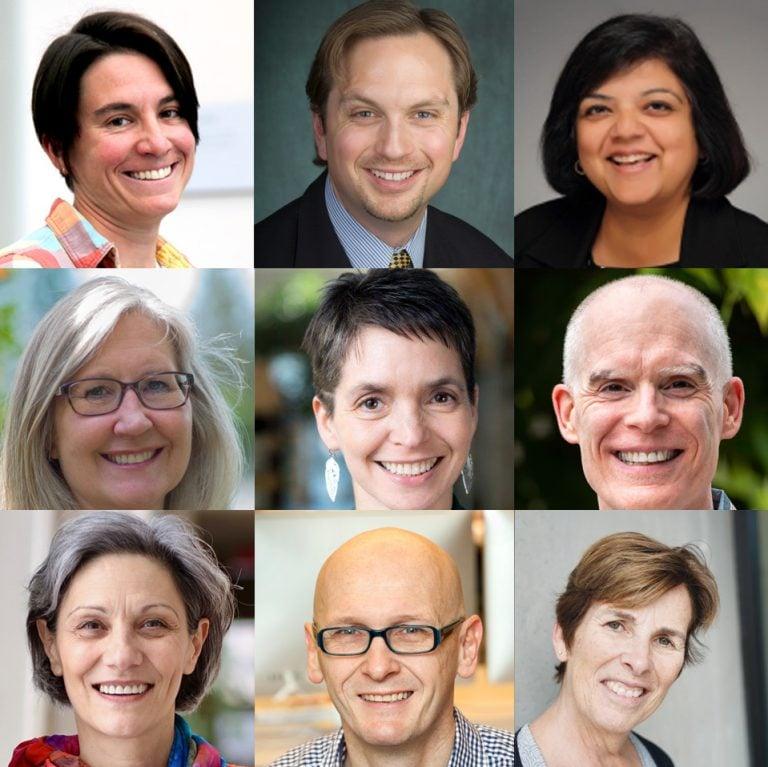
Clockwise from top left: Heather Jamniczky, Brent Mainprize, Nancy Nelson, Diane Symballuk, Paul Cubbon, Aleksandra Zecevic, Dave Andrews, Judy Thompson, and Tiffany Potter.
Share
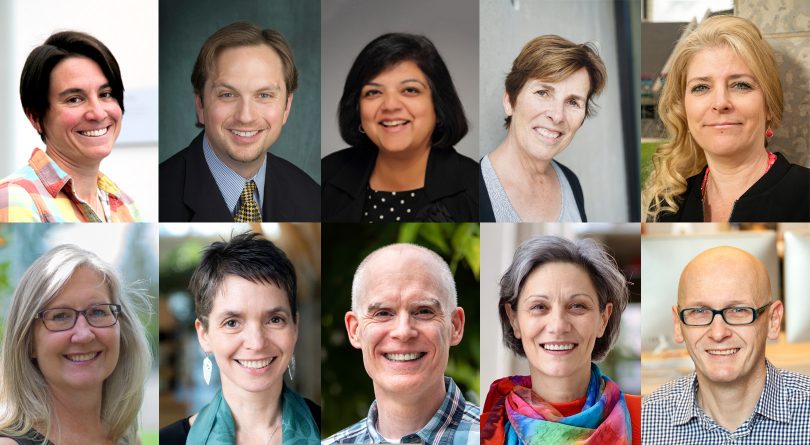
The 3M National Teaching Fellowship was created in 1986 by the Society for Teaching and Learning in Higher Education (STLHE) to recognize exceptional teachers in post-secondary education. Every year, the fellowship celebrates 10 university and college educators who show leadership in enhancing post-secondary education and a sustained dedication to undergraduate education. Winners become lifetime members of the society, a national organization working to advance teaching and learning in higher education.
As the program’s media sponsor since 2006, Maclean’s is pleased to announce the 2020 Fellows. Below, STLHE’s selection committee explains why these 10 professors are being recognized this year.
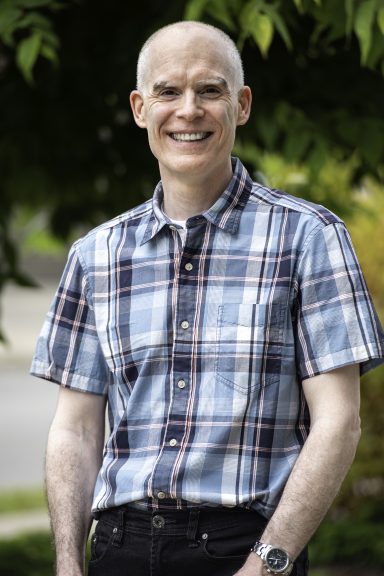
Dave Andrews
Department of Kinesiology
University of Windsor
Dave Andrews’ exceptional contributions to teaching, learning and educational leadership can be summed up in two words: positive impact. As the only professor at the University of Windsor who has been both a Research Leadership Chair and a Teaching Leadership Chair, Dave is one of those academics who is able to unify the research and the educational sides of his beloved discipline—human anatomy.
Dave delights in teaching. He makes extraordinary efforts to engage students, foster a sense of belonging, and help them succeed. He has established many well-known, well-loved traditions, from Halloween dress-up, to penning and performing weekly poems and songs. The most famous of these traditions is the Great Name Game, which has been covered on CBC Radio. Each year, Dave commits to learning the names of every student in the 200+ person class he teaches. On the last day of class, he tests his success by naming every student. It may seem like an amusing party game of limited significance, but student feedback suggests that it is symbolic of his much larger effort to make every student in the course feel known and welcome.
Dave is a powerful change agent. His transformative impact on those around him stems from the remarkable resonance and depth of his passion to learn, and to impart to others a hunger for learning. He speaks many of the languages of the academy, effortlessly code-switching across student humour, scientific scholarship, pedagogical expertise, professorial perspectives, and administrative priorities, always in the service of knowledge, teaching, and learning.
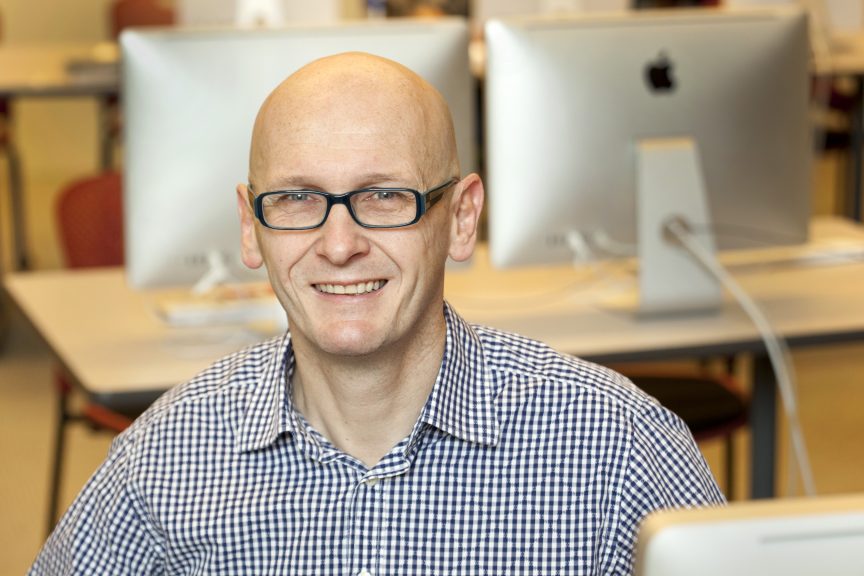
Paul Cubbon
Sauder School of Business
University of British Columbia
Paul Cubbon is a creative experimenter in his teaching and leadership. As an entrepreneur, he continually experiments with structured risk, analyzes the results, then adjusts to the benefit of students, his institution, and the community. Paul has developed campus-wide education for entrepreneurs, building alliances and agreements across the university. He partnered with the University of Toronto’s Rotman School of Management to expand its Creative Destruction Lab, a seed entrepreneurship program for massively scalable science-based companies. He raised millions of dollars to bring together hundreds of scientists, and businesspeople in order to mentor a new generation of entrepreneurs, and helped extend this joint venture across Canada. Paul also co-created an EdX course on marketing for non-marketers with more than 120,000 students from 30 countries, and taught online courses to social entrepreneurs in Africa, Asia, Europe and the Americas.
Paul bridges the world of academia and practicality, as a “Pracademic”: “Let me know if the door is slightly open, and I will run through it.” In his humble way, he aims to inspire and enable, encouraging early mistakes and failure as ways to build skills, knowledge and transformation. As one of his students says, Paul “…is a teacher who taught me how to teach myself.” Paul motivates his students to change something if they don’t like it, to go beyond profits and to focus on the social aspects in all their decision-making.
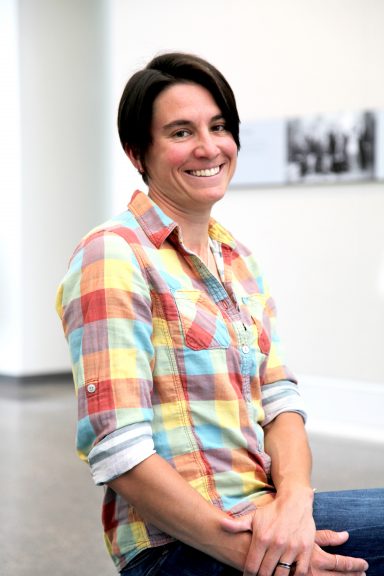
Heather Jamniczky
Cumming School of Medicine
University of Calgary
Heather is a star, and her students want us to know it. They say she is “absolutely outstanding,” “fosters courage and curiosity” and “makes everything so clear and really visual.” In the past decade, she has received seven awards for teaching anatomy from the Calgary Medical Students’ Association, as well as many other university, national and international awards. Seen as a wonderful mentor by her students and her colleagues, she drives innovation and change in her field. She co-developed technology tools for learning, including 2- and 3-dimensional models of the human body, and she collaborated with an art teacher to teach anatomy through sculpting.
An extraordinarily talented and dedicated teacher and scholar, Heather continually engages in systematic inquiry to create deep learning experiences for her students, such as exploring the use of ultrasound and 3-dimensional photography in her teaching. Heather sees her role as creating an environment in which she and her students collaborate as a learning team and work to achieve a set of common goals.
Heather practises the principles of inclusivity, transparency and responsiveness in everything she does, whether mentoring students and colleagues, developing novel courses or facilitating international workshops in anatomical sciences. As one of her colleagues said: “I admire Heather’s example as an educator and the connections she is able to create with students, and take inspiration from her example as I develop my own approaches in teaching.”
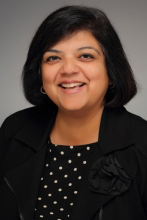
Sujata Madan
Desautels Faculty of Management
McGill University
Sujata Madan is an inspirational leader and a charismatic teacher of financial literacy. She is an innovator who has found ways to help an array of learners, from undergraduate students to seasoned business professionals, to advance their financial skills. In addition to creating and revising courses and programs, Sujata selflessly helps her colleagues improve their teaching. As one of her colleagues observes, “Sujata is in constant demand to help professors with their teaching and learning problems.”
Sujata is devoted to training the leaders of tomorrow and to ensuring her students are ready to adapt and excel in an ever-changing environment. She does this by giving them opportunities to apply theory to the real world and helping them build intuitive thinking. The generosity she shows to her students transcends the classroom walls; she leads by showing them the priceless joy of connecting with people. Sujata’s students recognize they have an absolute ally in their educational pursuits. One of her former students says, “Through humour and kindness, Sujata got her students engaged in the classroom and even made me look forward to our 6-9 p.m. classes four times a week. A hard feat.” And, just as a reminder, Sujata teaches finance!
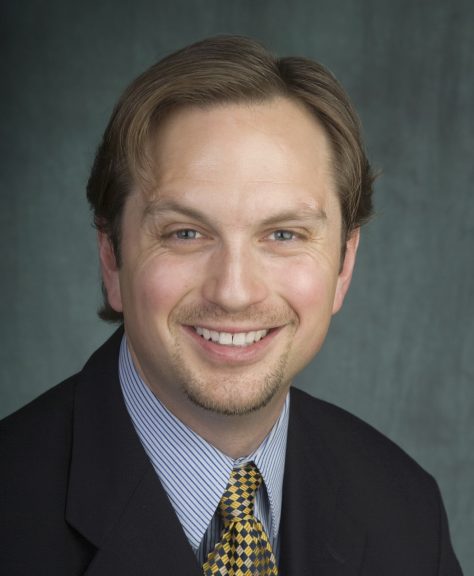
Brent Mainprize
Gustavson School of Business
University of Victoria
Brent believes in the magic of entrepreneurship. For him this magic is about nurturing a person’s discovery of their own unique abilities and passions, supporting their development, and then finding the perfect match out in the world to harness their individual power. He has been invited to more than 40 Indigenous communities in B.C. to help guide and facilitate community-based research, and to co-create unique programs that promote leadership and self-reliance through entrepreneurship. He was a key member of the leadership team establishing a national consortium for Indigenous economic development. In 2013, Brent launched the Aboriginal Canadian Entrepreneurs (ACE) program that delivers education in communities through visual and experiential learning. As Frank Parnell, CEO of the Tribal Resources Investment Cooperation, said, “The ACE program has become, and will continue to be, the key catalyst in forging our self-reliance. Our programs ensure the participation of Aboriginal People in the economy as business owners.”
Brent is a role model for his students and colleagues. He helps facilitate the integration of Indigenous practices into post-secondary business education and creates accessible educational opportunities for Indigenous students in remote communities. For Brent, cultivating and nurturing enduring relationships with Indigenous communities is an expression of the idea of “stronger together” – stronger as collaborating institutions, as educational leaders, and as a people on shared land.
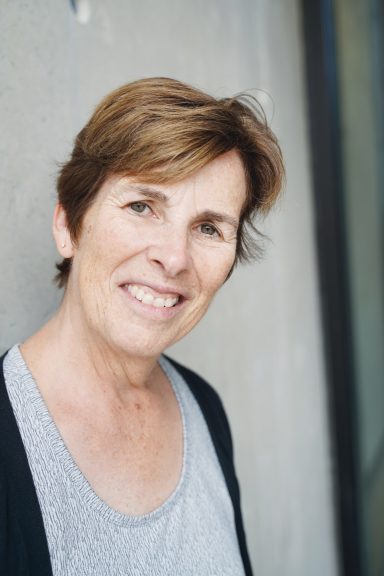
Nancy Nelson
Electronic Systems Engineering
Conestoga College Institute of Technology & Advanced Learning
Nancy Nelson’s passion is engineering, and her quest for student success is contagious. This quest has defined and directed Nancy’s professional journey, influencing her every idea, decision and effort as an educator. She is a vital role model for female engineers. As several of Nancy’s students commented, “She has provided the much-needed support that we women need by meeting with us many times and sharing her wisdom and experiences.” Time spent with Nancy is inspiring, productive, and satisfying.
Nancy was instrumental in bringing one of the first baccalaureate programs to Conestoga, and led the design, implementation, and accreditation process for the engineering program. Nancy was one of the first to bring project-based learning into engineering education, helping her students solve real-world problems. Her devotion to their success is evident in her innovative and award-winning career, her academic leadership in the electronic systems engineering program, her willingness to share effective, evidence-based practices with local, national, and international colleagues, and her commitment to continuous professional growth. As a colleague said, “Nancy is the ultimate educator, seeking to help others rise to their full potential by constantly bettering herself and sharing her insights in creative and thoughtful ways.”
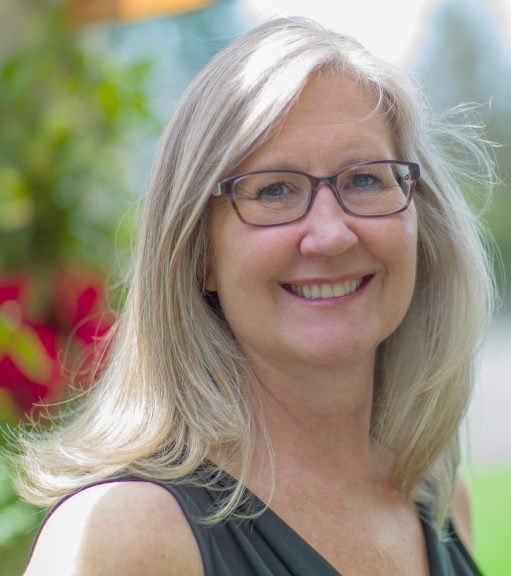
Tiffany Potter
Department of English
University of British Columbia
Tiffany is a genuine innovator in teaching and learning who changes her students’ entire perspective on literature. She is clear, dedicated and incredibly passionate about English literature. Tiffany involves her students in writing notes for published literary scholarship through class assignments, and has their names appear as contributors of original published material. She is also part of the creative team behind comPAIR, open-source learning software used at more than a dozen institutions worldwide in several fields, including physics and mathematics. This creative tool allows students to learn by comparing pairs of answers from their peers, helping students all over the world to feel less anxious and more confident as they reflect critically on their own work.
Tiffany’s peers describe her as an unmatched leader in the teaching of 18th-century British literature in North America. She established a successful international pedagogy series at the annual Canadian Society for Eighteenth-Century Studies (CSECS) conference and co-created the first-ever Pedagogy Hub at the annual meeting of the Congress of the Federation of the Social Sciences and Humanities. For Tiffany, being an academic mentor is not about being the best; it is about making it possible for others to do their best.
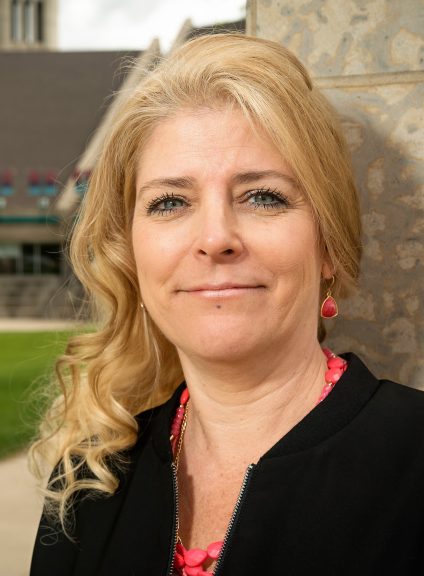
Diane Symbaluk
Department of Sociology
MacEwan University
The institution that MacEwan University is today lies on a foundation of Diane’s vital work. Most noteworthy is the important role she played in the institution’s transition to degree granting. At MacEwan, Diane has also become known more informally as the person “to go to” for mentorship involving research. Diane has the ability to transform students from apprehensive skeptics into confident researchers who go beyond sharing their findings to making a difference. As one student says, “Because of Diane’s support, openness and mentorship, I feel like I’m making contributions to my community.”
Diane describes her mentorship as a form of sharing—the sharing of her time, skills and passion with her students, colleagues, and the wider academic community. She is also dedicated to supporting her students beyond the classroom in their professional development. As another student says, “To have someone like Dr. Symbaluk believe in me and invite me to work with her one-on-one was an incredibly validating moment for me. It made me believe in myself—and that is the most sacred gift a professor can give a student.”
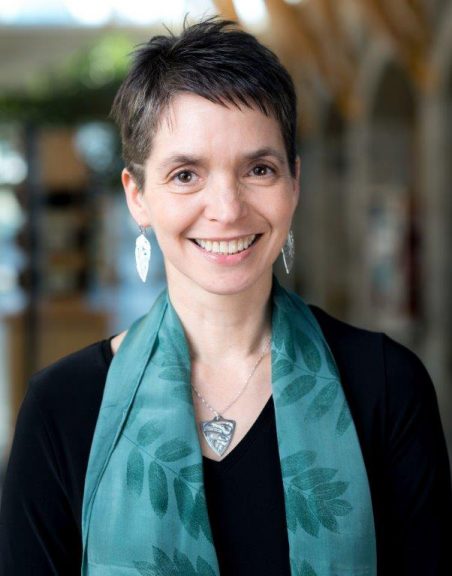
Edōsdi – Judy Thompson
Department of First Nations Studies
University of Northern British Columbia
Department of Indigenous Education
University of Victoria
Edōsdi – Judy Thompson is one of those educators who gives us hope. Hope that our journey on the challenging path of reconciliation will ultimately bring about positive change for every Canadian. Edōsdi’s career path includes exploring and developing her own talents and interests while focusing on bringing about positive development in the broader historical, political, cultural, and economical picture. In Edōsdi’s own words, “My whole identity is tied up in being a teacher, which is reflected not only in my teaching, but in my scholarly work, and my work with the larger community and world: institutions, academic disciplines, K-12 School System, Indigenous nations, and higher education in general.”
Edōsdi faces two gigantic tasks: the revitalization and reclamation of her people’s Tahltan language, and sharing her experiences with the inherent systemic and cultural challenges in teaching mandatory Indigenous studies courses so that the teachings of reconciliation can be done in a safe and honest way. Her willingness to face these tasks deserves the highest commendation and respect. In the words of one of Edōsdi’s former students: “Her courses sparked my interest in First Nations culture and Indigenous issues, inspiring me to take several additional courses on these topics as electives and to spend time learning about the local Indigenous communities whose land I have had the honour to live, learn, work, and play on.”
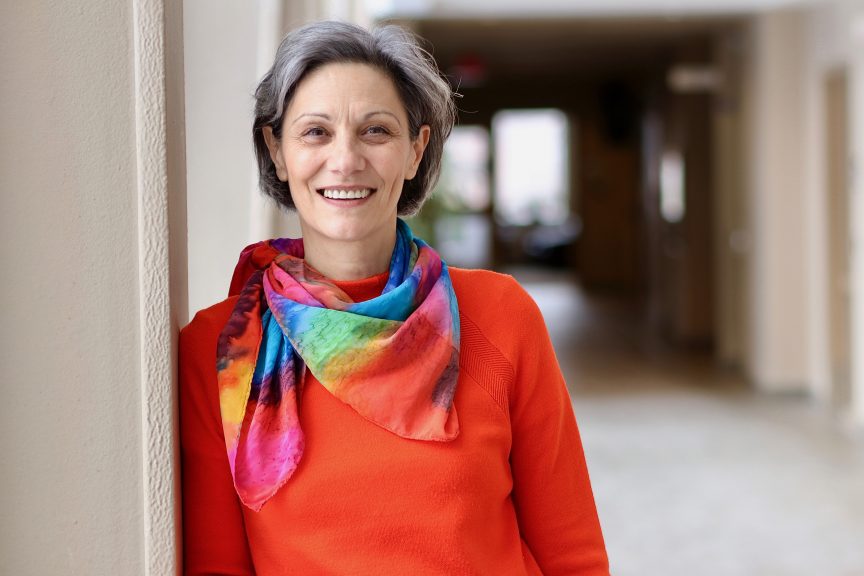
Aleksandra Zecevic
School of Health Studies
Western University
Aleksandra Zecevic is a trailblazer for community-engaged learning. She has engaged her students as partners in bringing the teaching of aging to life. Together they have changed the local community through projects such as the Age Friendly Cities initiative, which has improved city paths, benches, and provided education to prevent ageism. Her students have also collaboratively designed a mobile aging simulation, Evoking Empathy Lab, dedicated to helping people gain an appreciation of growing older. As one student said, “Nothing is more empowering than believing you are a valued member of the classroom because this mentality translates to believing you are an asset to society.”
Aleksandra is now reaching beyond Canada. Recently she built connections through virtual classrooms and international travel to Sweden, Denmark, and Norway. She works toward collaborative communities that are open, inclusive and ageless, using every opportunity to advocate for older adults and the improvement of teaching and learning.